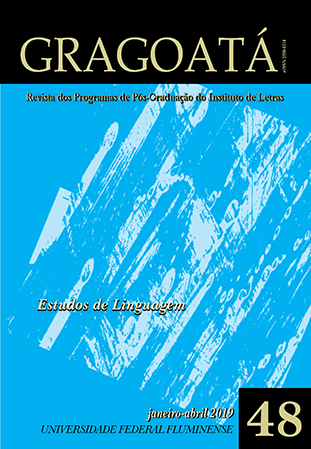Identity and language in cyberspace: is there a digital linguistic conscience?
DOI:
https://doi.org/10.22409/gragoata.v24i48.33622Keywords:
Digital Language, Digital Awareness, Digital Courtesy, Twitter.Abstract
In the cyberspace order, many netizens call themselves digital natives, constituting a new ethnic community outside the territorial and cultural boundaries of the physical world. They have in common what we might call the same "digital awareness". In this article we study how this digital awareness manifests itself through the expressions that Twitter users use to talk about who they are and what they do when they communicate by computer or other devices connected to the Internet network. Our goal is to try to systematize some specific characteristics of the digital language, in order to propose some clues for its pedagogy and to participate in the "good use" debate of the digital language within the framework of digital courtesy.
---
Original in Spanish.
Downloads
Downloads
Published
How to Cite
Issue
Section
License
Authors who publish in Gragoatá agree to the following terms:
The authors retain the rights and give the journal the right to the first publication, simultaneously subject to a Creative Commons license CC-BY-NC 4.0, which allows sharing by third parties with due mention to the author and the first publication by Gragoatá.
Authors may enter into additional and separate contractual arrangements for the non-exclusive distribution of the published version of the work (for example, posting it in an institutional repository or publishing it in a book), with recognition of its initial publication in Gragoatá.

Gragoatá is licensed under a Creative Commons - Attribution-NonCommercial 4.0 International.











